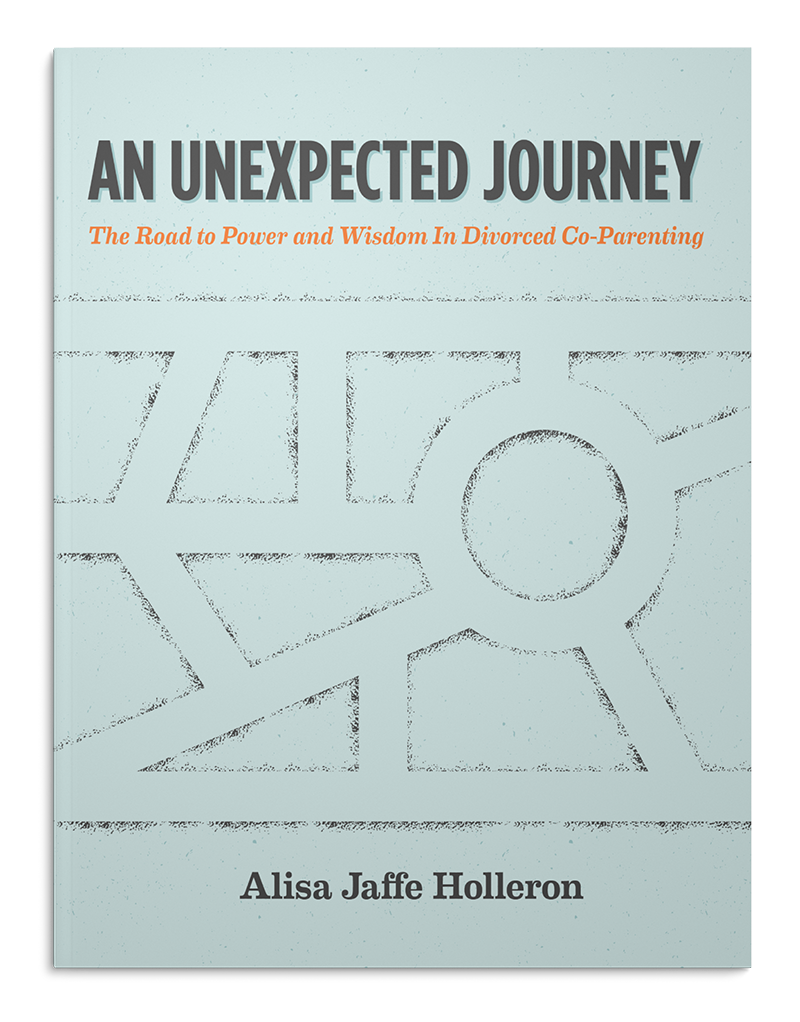Co-parenting communication is extremely challenging. Often co-parents feel powerless to change it. Is it reasonable to think communication between highly conflicted co-parents can improve? Yes, co-parents can and do improve their communication. It is amazing how much improving communication can improve life in general.
The first step in improving co-parenting communication is to look closely at the way you have been communicating. Communication between two people who are in conflict is patterned and repetitive; that is they have the same type of communication over and over.
Conflictual co-parenting communication usually has the following characteristics:
- Both people are in emotionally reactive states.
- There is little or no space between when one person talks and the other person talks.
- Talking is fast.
- There is a lot of interrupting and talking over each other.
- As the conversation progresses, both parties become increasingly unable to listen.
- There is much more talking occurring than listening.
- Both people come into the conversation hoping that the other person will respond differently than they usually do, and then get frustrated (emotional reactivity) because they do what they always do.
Sound familiar?
It’s common to think that there is some magic way of talking that improves co-parenting communication. In reality, what makes conflictual conversations difficult are the underlying emotions, not the words themselves. Don’t get me wrong, the way we say things or the words we use can definitely contribute to making things better or making things worse. However, if both people are triggered and don’t attend to their emotional states, the co-parenting communication will not improve.
Once you are aware of, and can work with your emotional reactivity, LISTENING is critical to good communication. That means YOU need to learn to listen. I’m not saying your co-parent shouldn’t listen as well, but you can’t make them. All you can do is work on your listening skills, knowing that it will likely contribute to better communication.
Why listening is so hard:
- Often co-parents don’t want to listen, because they feel like their co-parent is not listening to them. It just feels wrong, like making a concession for no good reason. Why should I listen to them when they’re not listening to me? This is an understandable reaction, but if somebody doesn’t start listening you’re not going to get very far! If you listen, they are much more likely to start listening.
- When we are angry, frustrated, anxious, etc. we are in an emotionally reactive state. Emotionally reactive states are very defensive states. The part of our brain that is able to be open and learn is not available to us. We have to know how to get ourselves calmed down enough that can listen.
- In order to be open to listening, we have to believe that there is something new to learn. This can be quite hard to do when we are in conflict. We tend to think of people we are in conflict with in a “fixed” way. That is, we characterize them in limiting ways. We think of them as selfish, or narcissistic or jerks or stupid. In order to be open to listening, we have to be willing to change our minds or open to the possibility that we don’t know everything about who they are and what motivates them. We even have to be willing to be open to the possibility that we are wrong or that our understanding of the situation is incomplete. It takes a lot of courage and self-honesty to do this.
- You have to change patterns. Patterns are hard tor change. But not impossible!
- You have to put aside the idea that you are going to be listened to, and believe that if you listen, it can change the situation for the better. It is very hard to let go of wanting to be heard or listened to.
Why listening is so important:
- Listening is the heart of communication. Both people can learn how to speak eloquently and effectively, but if there is no listening, communication is not happening.
- The more you listen, the more you will be listened to. Really. Now, some people are simply not capable of listening, but MOST people are capable of listening if the conditions are right. You have to create the conditions and hope that they follow.
- Without listening, we stay stuck in patterns that literally can ruin our lives. People stay stuck in the same communication patterns with spouses, co-parents, children, etc. for their entire lives. It is so energy draining and so limiting and just plain sad! Is that what you want? No, of course not.
- Last but certainly not least, YOU ARE HELPING YOUR CHILDREN. Yes, you are. For sure. Absolutely. Why? Because the less conflict there is, the better it is for them. And, the more you grow and learn about yourself, the more you improve, the better parent you are. Staying stuck in patterns, staying in resentment and conflict, is not good for them.
Here’s how YOU become a better listener:
- Notice that you are in an emotionally reactive state and work at getting yourself out of it, or at least calming it down a bit. This takes skill and practice. Mindfulness practices are extremely helpful with this. If you don’t create awareness of your reactivity and can’t work with it, it is very unlikely that you will be able to change the way you communicate.
- Create space. You can do this by saying things like: “I need to think for a minute about what you just said.” “I’m getting upsetting and I need to breathe for a minute.” “I know I’m not listening because I’m upset. Let me calm myself down a minute so I can listen better.” “I know what you just said is important and I need a minute to process it.”
- Slow down the pace of your talking. Notice that you are talking fast and consciously slow it down.
- Don’t interrupt! You will find this is very difficult, but work on it!
- When you head into a conversation, prepare yourself by vowing to listen. Consciously cutting back on the amount of time you talk will help you listen.
- Go into the conversation expecting that your co-parent will react the way they always do. Expecting them to be different than they’ve always been is an exercise in futility. Set the goal that YOU will be different, and hope that will help. Keep in mind that change is slow, so it may not happen the first time you try, but keep at it. You are going to catch your co-parent by surprise if you behave differently than you usually they. They will need time to adapt to it.
- Notice how much you might not want to be open, and then push yourself to be open. Be willing to consider that there is something for you to learn, and something you might not know about your co-parent and their motivation. Ask yourself what your co-parent is saying that you might not be understanding. Ask yourself why they are so upset.
What it takes to become a good listener:
- It takes commitment. You have to be willing to learn a lot. You have to be willing to grow and be self-reflective. You have to be committed to your own growth, and stop looking for your co-parent to change. You have to be committed to the idea that you are willing to work.
- A belief that it will improve you life and the lives of your children and the whole wide world, which it will!
- Courage! We stay in old stuck patterns because we like familiarity. But it’s not worth it. Find the courage to shake yourself up, get unstuck, and find relief from patterns that are draining your energy and making your life miserable.




